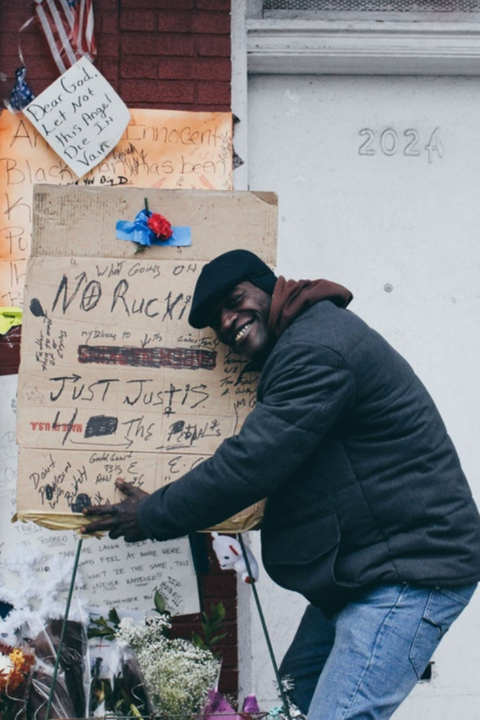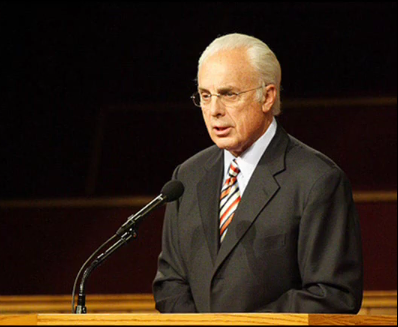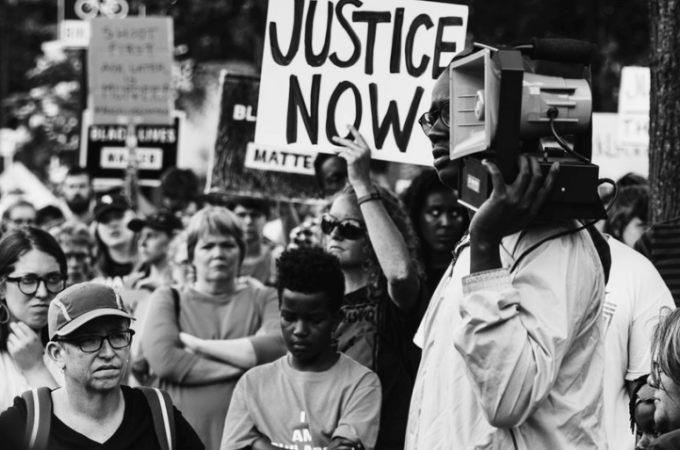In recent years the evangelical church has been roiled in a heated debate over “social justice” and racism.
The conflict has been simmering for some time, but is now out in the open with the release of the Statement on Social Justice and the Gospel supported by John MacArthur, Douglas Wilson, Voddie Baucham, and others.
The statement’s authors are concerned that the “social justice” movement in the broader culture has crept into the church. Evangelical “social justice” champions include, among others, Ken Wytsma, founder of the Justice Conference, and InterVarsity Christian Fellowship, who gave platform to an advocate of #BlackLivesMatter at their flagship Urbana missions conference in 2015. It also receives support from key leaders of the Gospel Coalition such as Thabiti Anyabwile, and well-known pastors such as Matt Chandler and David Platt.
Many outspoken evangelical advocates of “social justice” see  racism in the very DNA of America (to borrow Barak Obama’s famous phrase). In their eyes, it is pervasive and structural. While they would likely disclaim the theory of intersectionality, they tend to believe the ideas behind it, such as the primacy of group identity based on skin color (thus, their unapologetic use of the phrase “white privilege”), along with a sociology that sees the world as a zero-sum power struggle between ethnic groups. The line between good and evil, in their view, tends to run between oppressor and victim groups (you are either one or the other). They promote the innovative progressive view of racism as part and parcel of intersectional theory—namely, that only white people (and particularly white men) can be racist, because of their historical cultural hegemony. They readily affirm their indebtedness to far-left thought-leaders such as Ta-Nehisi Coates and Michelle Alexander.
racism in the very DNA of America (to borrow Barak Obama’s famous phrase). In their eyes, it is pervasive and structural. While they would likely disclaim the theory of intersectionality, they tend to believe the ideas behind it, such as the primacy of group identity based on skin color (thus, their unapologetic use of the phrase “white privilege”), along with a sociology that sees the world as a zero-sum power struggle between ethnic groups. The line between good and evil, in their view, tends to run between oppressor and victim groups (you are either one or the other). They promote the innovative progressive view of racism as part and parcel of intersectional theory—namely, that only white people (and particularly white men) can be racist, because of their historical cultural hegemony. They readily affirm their indebtedness to far-left thought-leaders such as Ta-Nehisi Coates and Michelle Alexander.
Pros and cons
Here’s what I appreciate about the evangelical social-justice champions. They care about social issues, such as poverty, racism, and the plight of the refugee. They want to see communities flourish. Their theology isn’t marred by an unbiblical sacred-secular dualism.
Here’s what I have against them. They’ve uncritically adopted many assumptions about social justice from the broader culture—assumptions that veer sharply from a biblical worldview. “Social justice” is the preferred descriptor of a movement on the far left that even left-leaning culture-watchers such as Jonathan Haidt, Camille Paglia, and Jordan Peterson, now identify as a pseudo-religion. This false religion now dominates the humanities departments of our universities, as well as entertainment and media industries, and increasingly the board rooms of major corporations like Google and Nike. It works hand-in-glove with the sexual revolution as it shares the same ideological roots in Romanticism, Postmodernism and Marxism. It has no place for such essential biblical virtues as grace, mercy and forgiveness, replacing these with grievance, hostility, offense, incivility, and retribution. Its branches are political correctness, identity politics, multiculturalism, and intersectionality. It is incompatible with America’s constitutional, republican form of government, and such fundamental goods as “due process.” Its bitter fruit is the breakdown of civil society.
Because evangelical social justice champions have absorbed many of the assumptions and much of the language of the “social justice” movement, they find themselves unwittingly syncretized to a false religion, one that works against the very thing they purport to champion—genuine justice.
A dangerous moment in the “social justice” debate
 So I’m grateful that evangelical leaders like MacArthur, Wilson and Bachaam have penned their statement and spoken out. This is a dangerous moment for evangelicals in the West. Our confusion over justice needs to be replaced by a careful discernment of the fundamental differences between biblical justice and this new “social justice” pseudo religion If we continue to allow the yeast of “social justice” to contaminate our theology, we’ll be greatly hindered at a time when the culture desperately needs to see true, biblical justice advocated and lived out.
So I’m grateful that evangelical leaders like MacArthur, Wilson and Bachaam have penned their statement and spoken out. This is a dangerous moment for evangelicals in the West. Our confusion over justice needs to be replaced by a careful discernment of the fundamental differences between biblical justice and this new “social justice” pseudo religion If we continue to allow the yeast of “social justice” to contaminate our theology, we’ll be greatly hindered at a time when the culture desperately needs to see true, biblical justice advocated and lived out.
So while I affirm the authors of the Statement on Social Justice and the Gospel for raising the alarm against a heretical teaching infiltrating the church, I have significant reservations.
First, the statement veers into the old sacred-secular dualism that the Disciple Nations Alliance has been pushing back against since we began our teaching over 20 years ago. For example, it says:
We emphatically deny that lectures on social issues (or activism aimed at reshaping the wider culture) are as vital to the life and health of the church as the preaching of the gospel and the exposition of scripture. … Historically, such things tend to become distractions that inevitably lead to departures from the gospel.
Is proclamation the sum of the mission of the church?
This gets very close to saying that care for the poor, or fighting against abortion, or sex-trafficking, are second-tier activities that “distract” from the Gospel. Phil Johnson, a close associate of John MacArthur, in a feisty exchange with Thabiti Anyabwile of the Gospel Coalition affirmed this notion:
Winning the culture, engaging the culture, changing the culture as ambiguous as it is, the language itself signifies that mission drift is already under way.
He’s speaking of the mission of the church. For Johnson, to work for social and cultural transformation reflects “mission drift.” That’s another way of saying these represent “distraction” from the central mission of the church—gospel proclamation.
We’ve heard this before.
- Scott Allen
… to be continued






